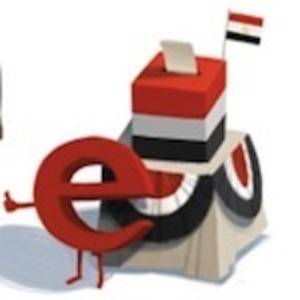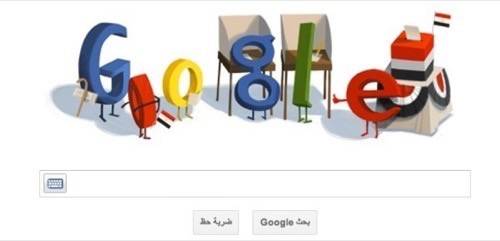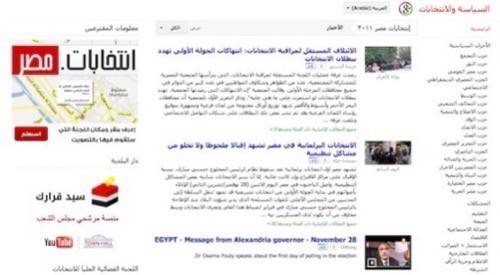Egyptians go to the polls today to vote in the first election since the ouster of longtime dictator Hosni Mubarak. Egypt was a flashpoint in the so-called Arab Spring this year, a string of popular uprisings in which the Web and mobile technology played crucial and unprecedented roles. Google is celebrating this historic event with an election-day doodle on its Egypt’s Google homepage.

Google has also launched an extensive Egyptian elections page full of info on candidates, major issues and polling stations. The information is provided by Egypt’s Higher Elections Committee, but Google’s page enhances the content with Google News, Maps and its other election tools. Google is building tools and programs to improve elections around the world, and this landmark election in Egypt is a storybook example of Web technology as a force for open and accountable government.

The Mubarak regime tried, even as it fell, to restrict access to Web services in Egypt in order to contain the uprising. It first blocked Twitter, then Facebook and Google services, and then it went for a full-on Internet blackout. The Internet struck back, though. Anonymous targeted Mubarak’s regime websites, and hackers and bloggers in Egypt and around the world lent their support, even facing arrest.
Google lent its support, too, featuring YouTube videos of the uprisings. The extensive resources Google offers Egyptian voters on its elections page today follow through on that support with an effort to make democracy better through Web technology.

You can read more about Google’s celebration of this historic election on the Google blog.

















